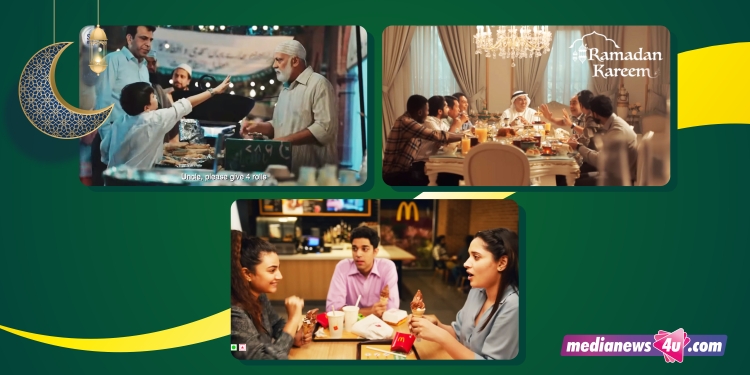Brands leave no stone unturned during festive occasions. Apart from festive offers and collections, campaigns riding on the mood are staple. That said, over the last few years brands have been a tad cautious in all communication they put out.
In 2022, controversy surrounded Fabindia’s festive collection ‘Jashn-e-Riwaaz’ (Celebration of Tradition) as the brand faced a backlash on social media followed by a #BoycottFabIndia trend. The contention was that the brand hurt religious sentiments by using an Urdu phrase for its festive collection for a Hindu festival.The brand had to withdraw the campaign and issue a statement. Tata Cliq landed in trouble as its models were seen wearing green clothes. Jewellery brand Tanishq faced controversy for its ad on an interfaith couple.
In the age of cancel culture, brands are being extra conscious to stay clear of the controversies and trying to strike a delicate balance between commercial and festive (read religious) messaging.
In this context, it seems like the Ramzan advertising of yore has been given a go by.
There used to be a time not too far back when brands went live with some heartwarming campaigns for the ‘Neki ka mahina’.
Are brands steering clear of Ramzan of late?

“The recent trends of brand boycotts are a growing concern for advertisers. It is becoming more and more difficult for brands to find the perfect tone and effectively communicating the brand’s message while respecting the cultural and religious significance of the occasion. Every passing year, there are fewer and fewer brands that are navigating this successfully. It is becoming a bit unpredictable for them as to what will lead to controversies and boycotts. You are aware of the No Bindi No Business call for boycott (#NoBindiNoBusiness); while it was for advertisements around Hindu festivals, it has had its wider ramifications. Imagine a Ramzan-themed advertisement and models without a bindi,” observes Shweta Purandare, Advertising Compliance Expert and Founder of Tap-a-gain.
According to her, the top five concerns for advertisers to shy away from Ramzan campaigns could be: alienating non-muslim consumers, fear of sounding unauthentic, fear of misrepresenting religious values, apprehension about offending religious sensitivities, struggling with the right tonality of messaging.

“In the last 10 years, we have blown small and large festivals out of proportion and it has been an overload. In the last couple of years, there have been many instances where we have used bindi, colour around campaigns, and there is a clarion call on boycott the brand etc. Hence brands are genuinely concerned,” observed Rahul Vengalil, Executive Director, Everest Brand Solutions.
He added, “Brands try to stay away from making any statement which probably could hurt one consumer or the other. When we talk about memorability, it’s individual in nature. A piece of communication which I might find memorable, for another individual it might be distasteful. Brands are listening these days and there is so much discussion happening (than before) before a campaign is going live. There will be brands who want to break the clutter, but a majority of them are extra cautious on how they want to promote any festival these days.”

“Don’t know the actual numbers but there could be a possibility. Religion is a sensitive topic. While brands can stand up for a cause, have a purpose/point-of-view, they cannot take certain chances that would negatively impact their business and position in the market. If a brand advertises for Ramzan, they could be trolled for not having advertised for Baisakhi or Sankaranti. Strange questions can come from unexpected quarters. And it’s not easy to have all the answers. Also, the past experiences have not been very positive – from the Tanishq controversy to no-bindi-no-business on fashion brands. It’s quite unfortunate, in an overall sense, but I am not surprised that brands/businesses are playing it safe,” says Ayyappan Raj, Founder, The Script Room.

According to Ranju Mohan, Executive Director and Co-founder, Ikigrow, brands may not be scared, but it is about how relevant the campaigns are to the audience.
“Targeting of the audience is much sharper because of the advent of digital. Lot of campaigns are running parallel on digital than on traditional media. I believe that if the context is relevant for the target audience then it will create an action. Also, as the IPL season is on, mass campaigns by brands are planned around IPL as a property or in its context, for which there is no need to indicate a festival occasion,” Mohan added.

“With an increasingly fragmented media and constraints on marketing budgets, there is an effort to constantly innovate and deliver more bang for the advertising buck. Media channels like Instagram have apparently seen a quantum leap in the promotions that use influencers. Both small to medium influencers as well as mega influencers. This kind of targeted marketing could be one of the reasons why we are not seeing as many mass media campaigns at this time of the year. Personally, I miss the tear jerker campaigns on TV. Apis is a consolation of course,” noted Ramesh Narayan, Founder Canco advertising.
Is it too small an audience to engage?
“If that’s the case, then we shouldn’t have a Salman Khan movie release during Ramzan period,” said Vengalil.
He added, “Any celebration in India is a celebration. Hence, it is not that the community is very small and brands are not very focused. There will still be messages focused on Ramzan, but not many of them will take a stand theme-wise.”
“Essentially, while targeting a small audience, advertisers may not want to displease the majority,” said Purandare.

















